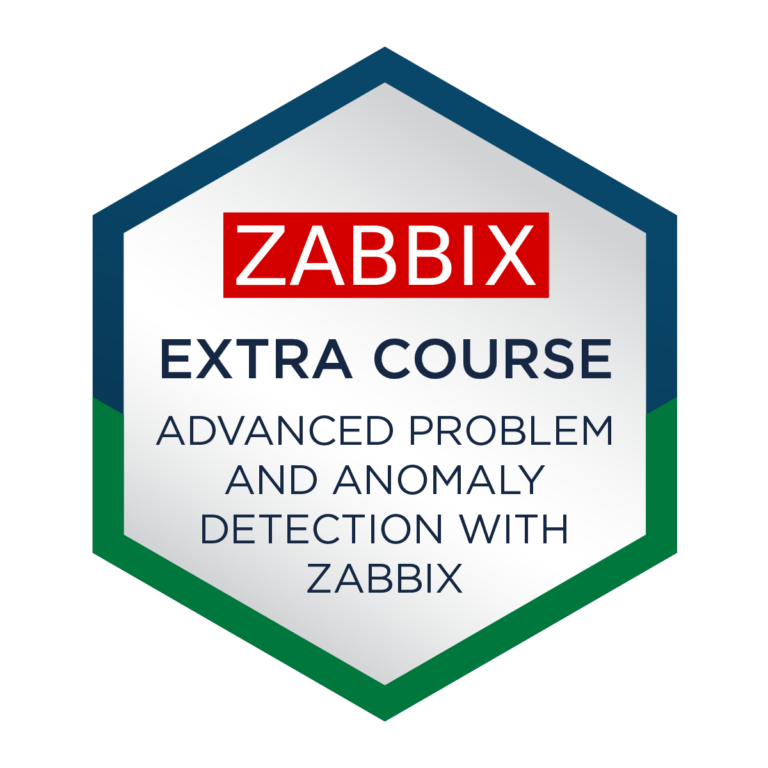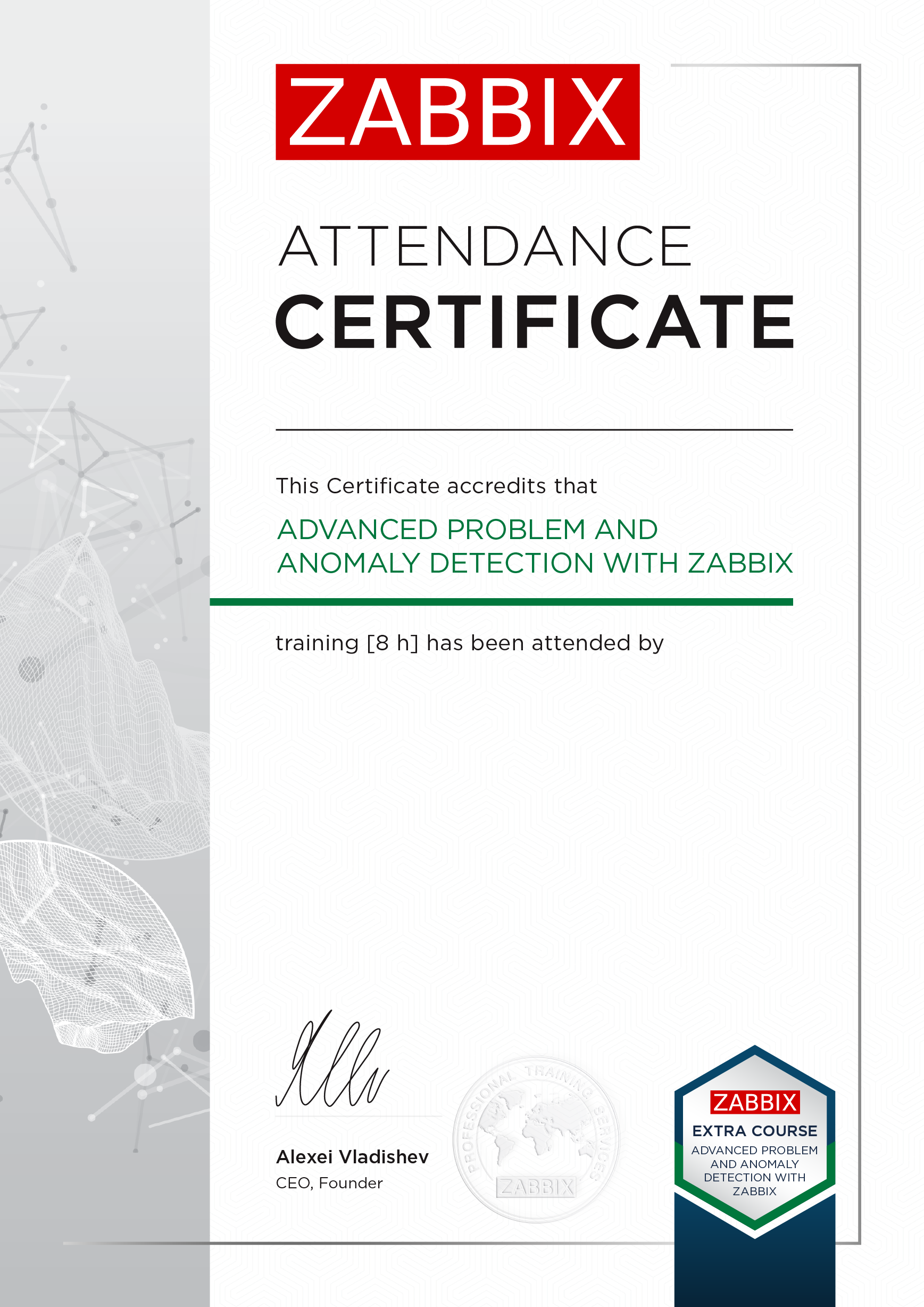
Advanced Problem and Anomaly Detection with Zabbix
This course is devoted entirely to problem detection. It demonstrates best practices and covers Zabbix tuning, including the detection of the most sensitive triggers and the definition of custom thresholds using context-based user macros.
The course’s ultimate goal is to show the most appropriate ways of detecting problems in different scenarios.
Information about the course
| Designed for the product: | Zabbix 7.0 |
|---|---|
| Group size: | Small groups (up to 10 students) |
| Requirements: | None |
| Type of exam: | 30 min, theoretical |
| Course language: | English or Czech |
| Available online: | Yes |
| Course length: | 1 DAY |
| Course price: | € 490 excluding VAT |
Course content
Day 1
- Detecting problems in Zabbix
- Detecting problems by combining multiple metrics
- Most used trigger functions
- Time-based trigger functions
- Predictive trigger functions
- Long-term analysis using trend data
- Preventing trigger flapping
- Detecting problems using log files
- Dependencies between problems
- Reacting to problems using actions
- Event correlation rules

Tomáš Heřmánek
CEO & Zabbix Certified TrainerAdditional information
Certificate
- Each participant will receive a certificate of course completion.
- Upon successful completion of the exam, you will obtain the Advanced Problem and Anomaly Detection with Zabbix certificate.

Course certificates and gifts
For all attendees

For passing the exam
Acquired skills and knowledge
Prevent alert storms and false alarms
by utilizing a variety of Zabbix trigger functions
React only to root cause problems
with trigger dependencies and event correlation
Configure dynamic problem detection thresholds
with baseline monitoring and anomaly detection features
Detect problems proactively
by configuring predictive problem detection
Outcomes
Organizational impact
Incorrectly configured problem detection and alerting logic can have a lasting impact on the efficiency of your monitoring and alerting workflows. During the course, attendees will learn how to configure problem detection in a way that avoids unwanted noise, alert floods, and flapping. The course also covers predictive problem detection and dynamic problem thresholds by way of baseline monitoring and anomaly detection.
Individual impact
During the course attendees will learn about a variety of Zabbix trigger functions and gain not only in-depth Zabbix problem detection knowledge, but also a deeper understanding of how incorrect problem detection and alerting workflows can impact broader monitoring workflows, plus how such scenarios can be both fixed and prevented.
